 W
WSkepticism or scepticism is generally a questioning attitude or doubt towards one or more putative instances of knowledge which are asserted to be mere belief or dogma. Formally, skepticism is a topic of interest in philosophy, particularly epistemology. More informally, skepticism as an expression of questioning or doubt can be applied to any topic, such as politics, religion, or pseudoscience. It is often applied within restricted domains, such as morality, theism, or the supernatural.
 W
WAfter Truth: Disinformation and the Cost of Fake News is a 2020 documentary television film directed by Andrew Rossi and executive produced by Brian Stelter. The film premiered on HBO on March 19, 2020.
 W
WAma Llulla is a fact-checking network comprising multiple independent journalism organizations that was created to combat disinformation within Peru. The group primarily focuses on verifying information disseminated by political groups and social media while also providing truthful information to indigenous groups in the nation.
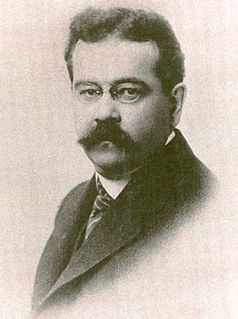 W
WAnomalistics is the use of scientific methods to evaluate anomalies, with the aim of finding a rational explanation. The term itself was coined in 1973 by Drew University anthropologist Roger W. Wescott, who defined it as being the "serious and systematic study of all phenomena that fail to fit the picture of reality provided for us by common sense or by the established sciences."
 W
WBigfoot: The Life and Times of a Legend is a non-fiction book written by Joshua Blu Buhs and published in 2009 by the University of Chicago Press. It explores the history of the concept of Bigfoot, discusses the exploits of its believers, as well as hoaxers, and examines the cultural influences that give the entity its staying power.
 W
WThis list of books about skepticism is a skeptic's library of works centered on scientific skepticism, religious skepticism, critical thinking, scientific literacy, and refutation of claims of the paranormal. It also includes titles about atheism, irreligion, books for "young skeptics" and related subjects. It is intended as a starting point for research into these areas of study.
 W
WAlan Melikdjanian, known by the alias Captain Disillusion, is a Latvian-American independent filmmaker and YouTuber. Melikdjanian has been active in the founding of video-sharing sites Openfilm and Filmnet.com, and is the creator of the webseries Captain Disillusion, which focuses on critical analysis of visual effects and video editing while promoting critical thinking and skepticism.
 W
WCartesian doubt is a form of methodological skepticism associated with the writings and methodology of René Descartes. Cartesian doubt is also known as Cartesian skepticism, methodic doubt, methodological skepticism, universal doubt, systematic doubt, or hyperbolic doubt.
 W
WThe Critical Eye is a Discovery Science Channel documentary series examining pseudoscientific and paranormal phenomena. The eight-part documentary series aired from October 2002 through February 2003 and was hosted by actor and scientific skeptic William B. Davis.
 W
WThe Cyrenaics or Kyrenaics were a sensual hedonist Greek school of philosophy founded in the 4th century BCE, supposedly by Aristippus of Cyrene, although many of the principles of the school are believed to have been formalized by his grandson of the same name, Aristippus the Younger. The school was so called after Cyrene, the birthplace of Aristippus. It was one of the earliest Socratic schools. The Cyrenaics taught that the only intrinsic good is pleasure, which meant not just the absence of pain, but positively enjoyable sensations. Of these, momentary pleasures, especially physical ones, are stronger than those of anticipation or memory. They did, however, recognize the value of social obligation and that pleasure could be gained from altruistic behaviour. The school died out within a century and was replaced by the philosophy of Epicureanism.
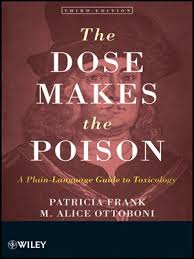 W
WThe Dose That Makes the Poison: A Plain Language Guide to Toxicology, written by M. Alice Ottoboni and originally published in 1984 by Vincente Books, is a non-fiction book to help laypeople understand the environmental, industrial, and personal risks of using chemicals. As of March 2016, the book is in its third edition.
 W
WDoubt is a mental state in which the mind remains suspended between two or more contradictory propositions, unable to be certain of any of them. Doubt on an emotional level is indecision between belief and disbelief. It may involve uncertainty, distrust or lack of conviction on certain facts, actions, motives, or decisions. Doubt can result in delaying or rejecting relevant action out of concern for mistakes or missed opportunities.
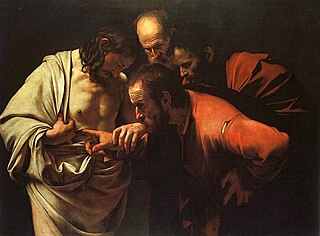 W
WA doubting Thomas is a skeptic who refuses to believe without direct personal experience — a reference to the Gospel of John's depiction of the Apostle Thomas, who, in John's account, refused to believe the resurrected Jesus had appeared to the ten other apostles until he could see and feel Jesus' crucifixion wounds.
 W
WThe dream argument is the postulation that the act of dreaming provides preliminary evidence that the senses we trust to distinguish reality from illusion should not be fully trusted, and therefore, any state that is dependent on our senses should at the very least be carefully examined and rigorously tested to determine whether it is in fact reality.
 W
WAn ephectic potentially describes three interrelated concepts: (1) a type of skeptic, (2) the practice of a type of skepticism, or (3) the general state of being "given to suspense of judgment".
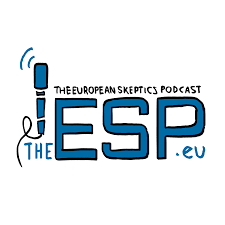 W
WThe European Skeptics Podcast (TheESP) is a weekly podcast recorded in English and hosted by three skeptics from several different European countries: András Gábor Pintér from Hungary, Pontus Böckman from Sweden and Annika Harrison from Germany who joined the team in July 2020. The main goal of the podcast is to "support European level actions within the skeptical movement and build bridges among skeptics" all over the continent. The show is often jokingly referred to by other podcasters and people interviewed on the show as "the REAL ESP experience" referring to a namesake pseudoscientific concept.
 W
WA Field Guide to Lies: Critical Thinking in the Information Age is a bestselling book written by Daniel J. Levitin and originally published in 2016 by Dutton. It was published in 2017 in paperback with a revised introduction under the new title Weaponized Lies: How to Think Critically in the Post-truth Era; a new edition was published in 2019 under the title A Field Guide to Lies: Critical Thinking With Statistics and the Scientific Method.
 W
WAndrew Fraknoi is a retired professor of astronomy recognized for his lifetime of work using everyday language to make astronomy more accessible and popular for both students and the general public. In 2017 Fraknoi retired from his position as Chair of the Department of Astronomy at Foothill College. In retirement he continues to teach through the Fromm Institute for Lifelong Learning and the Osher Lifelong Learning Institute at San Francisco State University, to give public lectures, and to continue to add to his body of written work. He is the recipient of numerous awards and honors in his field.
 W
WDavid Hume was a Scottish Enlightenment philosopher, historian, economist, librarian and essayist, who is best known today for his highly influential system of philosophical empiricism, skepticism, and naturalism. Beginning with A Treatise of Human Nature (1739–40), Hume strove to create a naturalistic science of man that examined the psychological basis of human nature. Hume argued against the existence of innate ideas, positing that all human knowledge derives solely from experience. This places him with Francis Bacon, Thomas Hobbes, John Locke, and George Berkeley as a British Empiricist.
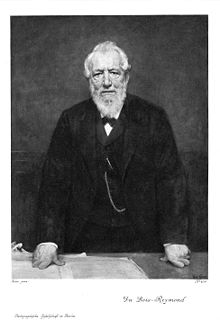 W
WThe Latin maxim ignoramus et ignorabimus, meaning "we do not know and will not know," represents the idea that scientific knowledge is limited. It was popularized by Emil du Bois-Reymond, a German physiologist, in his 1872 address "Über die Grenzen des Naturerkennens"
 W
WIn the study of the human mind, intellect refers to and identifies the ability of the mind to reach correct conclusions about what is true and what is false, and about how to solve problems. The term intellect derives from the Ancient Greek philosophy term nous, which translates to the Latin intellectus and into the French and English languages as intelligence. Discussion of the intellect is in two areas of knowledge, wherein the terms intellect and intelligence are related terms.In philosophy, especially in classical and medieval philosophy the intellect (nous) is an important subject connected to the question: How do humans know things? Especially during late antiquity and the Middle Ages, the intellect was proposed as a concept that could reconcile philosophical and scientific understandings of Nature, with monotheistic religious understandings, by making the intellect a link between each human soul, and the divine intellect of the cosmos. During the Latin Middle Ages the distinction developed whereby the term intelligence referred to the incorporeal beings that governed the celestial sphere; see: passive intellect and active intellect. In modern psychology and in neuroscience, the terms intelligence and intellect describe mental abilities that allow people to understand; the distinction is that intellect relates to facts, whereas intelligence relates to feelings.
 W
WIntellectualism is the mental perspective that emphasizes the use, the development, and the exercise of the intellect; and also identifies the life of the mind of the intellectual person. In the field of philosophy, “intellectualism” is synonymous with rationalism, knowledge derived from reason. Sociologically, the term intellectualism can also have a socially negative connotation about a man or woman intellectual who gives “too much attention to thinking” and who shows an “absence of affection and feeling”.
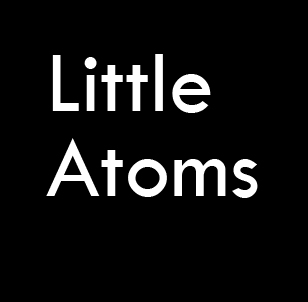 W
WLittle Atoms is a website, podcast and magazine dedicated to ideas and culture. The radio show broadcast weekly from London on Resonance FM 104.4. It is hosted by Neil Denny. The website is edited by Padraig Reidy. The first edition of Little Atoms magazine launched in November 2015.
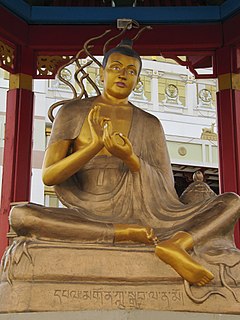 W
WMadhyamaka also known as śūnyavāda and niḥsvabhāvavāda refers to a tradition of Buddhist philosophy and practice founded by the Indian philosopher Nāgārjuna. The foundational text of the mādhyamaka tradition is Nāgārjuna's Mūlamadhyamakakārikā. More broadly, madhyamaka also refers to the ultimate nature of phenomena as well as the non-conceptual realization of ultimate reality that is experienced in meditation.
 W
WMastermind: How to Think Like Sherlock Holmes, released January 3, 2013, is a book written by Maria Konnikova exploring ways to improve mindfulness, logical thinking and observation using Arthur Conan Doyle's fictional character Sherlock Holmes as an exemplar. Konnikova intertwines her analysis of Holmes's "habits of mind" with findings from the modern-day fields of neuroscience and psychology and offers advice on how to become a more rational thinker.
 W
WIn epistemology, the Münchhausen trilemma, also commonly known as the Agrippan trilemma, is a thought experiment intended to demonstrate the theoretical impossibility of proving any truth, even in the fields of logic and mathematics, without appealing to accepted assumptions. If it is asked how any given proposition is known to be true, proof may be provided. Yet that same question can be asked of the proof, and any subsequent proof. The Münchhausen trilemma is that there are only three ways of completing a proof:The circular argument, in which the proof of some proposition presupposes the truth of that very proposition The regressive argument, in which each proof requires a further proof, ad infinitum The dogmatic argument, which rests on accepted precepts which are merely asserted rather than defended
 W
WMysterious New Mexico: Miracles, Magic, and Monsters in the Land of Enchantment is a 2014 collection of thirteen investigations conducted by author Ben Radford into cases involving claims of the paranormal occurring in or with significant connections to New Mexico.
 W
WNon-Prophet Week is an annual charity week for the irreligious in the United Kingdom and Ireland, and is coordinated by the Humanist Students. During the week, AHS societies and similar organisations in Ireland and the UK are encouraged to run charity events. The week has had different themes. Sometimes a charity has been chosen, other times groups have been encouraged to volunteer their time, donate blood and raise money for any cause or issue that they feel is important. So far over 200 Non-Prophet Week events have taken place in around 30 different cities. Over £12,000 has been raised and donated to charity.
 W
WNullius in verba is the motto of the Royal Society. John Evelyn and other fellows of the Royal Society chose the motto soon after the Society's founding in 1660.
 W
WThe Omphalos hypothesis is one attempt to reconcile the scientific evidence that the universe is billions of years old with a literal interpretation of the Genesis creation narrative, which implies that the Earth is only a few thousand years old. It is based on the religious belief that the universe was created by a divine being, within the past six to ten thousand years, and that the presence of objective, verifiable evidence that the universe is older than approximately ten millennia is due to the creator introducing false evidence that makes the universe appear significantly older.
 W
WThe Pigasus Award is the name of an annual tongue-in-cheek award that was presented by noted skeptic James Randi. The award seeks to expose parapsychological, paranormal or psychic frauds that Randi had noted over the previous year. Randi usually made his announcements of the awards from the previous year on April 1.
 W
WThe problem of induction is the philosophical question of what are the justifications, if any, for any growth of knowledge understood in the classic philosophical sense—knowledge that goes beyond a mere collection of observations—highlighting the apparent lack of justification in particular for:Generalizing about the properties of a class of objects based on some number of observations of particular instances of that class or Presupposing that a sequence of events in the future will occur as it always has in the past. Hume called this the principle of uniformity of nature.
 W
WPsychic Blues: Confessions of a Conflicted Medium is a memoir by Mark Edward about his time working as a psychic entertainer. Published in 2012, the book covers Edward's controversial career as both a performer and a skeptical activist.
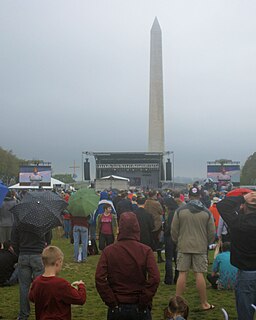 W
WThe first Reason Rally was a public gathering for secularism and religious skepticism held on the National Mall in Washington, D.C. on March 24, 2012. The rally was sponsored by major atheistic and secular organizations of the United States and was regarded as a "Woodstock for atheists and skeptics". A second Reason Rally was held on June 4, 2016 at the Lincoln Memorial in Washington, D.C..
 W
WRussell's teapot is an analogy, formulated by the philosopher Bertrand Russell (1872–1970), to illustrate that the philosophic burden of proof lies upon a person making empirically unfalsifiable claims, rather than shifting the burden of disproof to others.
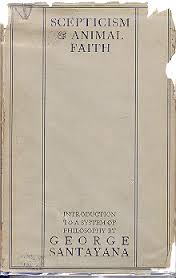 W
WScepticism and Animal Faith (1923) is a later work by Spanish-born American philosopher George Santayana. He intended it to be "merely the introduction to a new system of philosophy," a work that would later be called The Realms of Being, which constitutes the bulk of his philosophy, along with The Life of Reason.
 W
WSnopes, formerly known as the Urban Legends Reference Pages, is a fact-checking website. It has been described as a "well-regarded reference for sorting out myths and rumors" on the Internet. The site has also been seen as a source for both validating and debunking urban legends and similar stories in American popular culture.
 W
WSpoonbenders is a fantasy novel by American writer Daryl Gregory, published in 2017 by Knopf. It follows the rise and fall of the Telemachus family as its members, each with his or her own unique telekinetic or clairvoyant ability, navigate lives filled with frustrations, hilarity and intrigue.
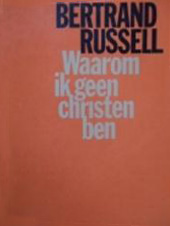 W
WWhy I Am Not a Christian is an essay by the British philosopher Bertrand Russell. Originally a talk given 6 March 1927 at Battersea Town Hall, under the auspices of the South London Branch of the National Secular Society, it was published that year as a pamphlet and has been republished several times in English and in translation.
 W
WXenophanes of Colophon was a Greek philosopher, theologian, poet, and critic of religious polytheism. Xenophanes is seen as one of the most important Pre-Socratic philosophers. Eusebius quoting Aristocles of Messene says that Xenophanes was the founder of a line of philosophy that culminated in Pyrrhonism. This line begins with Xenophanes and goes through Parmenides, Melissus of Samos, Zeno of Elea, Leucippus, Democritus, Protagoras, Nessos of Chios, Metrodorus of Chios, Diogenes of Smyrna, Anaxarchus, and finally Pyrrho. It had also been common since antiquity to see Xenophanes as the teacher of Zeno of Elea, the colleague of Parmenides, and generally associated with the Eleatic school, but common opinion today is likewise that this is false.